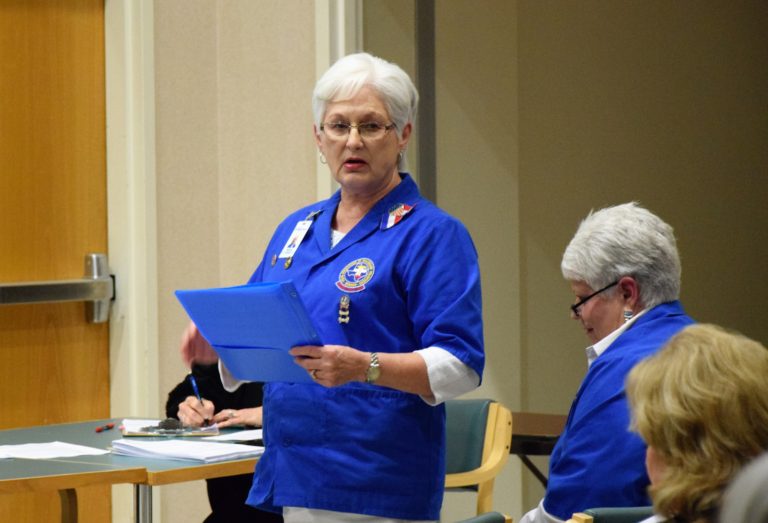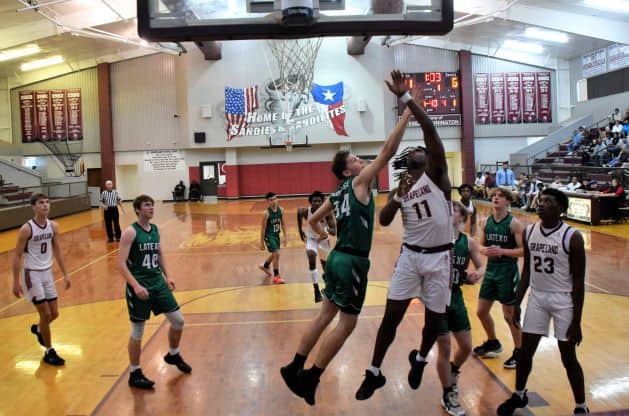The Anatomy of an E-mail Scam

By Will Johnson
Messenger Reporter
GRAPELAND – Over the last several years, this publication has covered a variety of scams and scam artists. Some have been more brazen than others.
I once received a message in my personal e-mail informing me I was stranded in a foreign country and needed $5,000 to get back to the U.S.
Now, don’t get me wrong. I can always use an extra $5K. Had it not been for the simple reason I was in Grapeland and had never been to Crete, I may have sent the money to myself.
There was also an issue where “warrants” had been issued for my arrest because of an amount charged to a credit card I had never applied for, received or viewed on my credit report.
Fortunately, an e-mail informed me if I wanted to avoid the embarrassment of being arrested at work, I could send half the money to a P.O. Box in Weslaco.
The best part of the communique, however, was the line that stated “… or you can meet our representative at the courthouse with a cashier’s check.”
No specific courthouse or representative name was given. Just go meet some random dude at the courthouse and give him a cashier’s check. Call me crazy, but that sounded a little fishy.
On Tuesday, Aug. 1, I received an e-mail from Sherry Monaghan at 11:34 a.m. The e-mail address the message was sent from was [email protected]. I would like to say I know who Sherry Monaghan is, but I don’t.
To put it bluntly, I’m getting older, my mind isn’t as sharp as it once was and I’ve never been good with remembering names.
So, it was entirely possible I might know this person. That possibility seemed even more likely given the familiarity expressed in the first e-mail I received from Sherry.
The emails are printed as written.
“Are you in your office?” the first e-mail stated.
I saw the e-mail at 1:19 p.m. and replied yes.
The next e-mail came in at 1:22 p.m.
“Will, I have an invoice that we need to make a payment for urgently today. Can we get a wire transfer out for it before the cutoff time? So I can email you the wire instruction right away,” the e-mail stated.
While I certainly appreciated her offer of assistance to help pay the invoice, I was unsure as to what I was being billed for.
As a result of my confusion, I replied, “You’re going to have to give me a little more info. on this.”
At 1:29 p.m., the info appeared in my in-box.
“Will, here is the wiring instruction. Please process the transfer of $17,630 to the account Information below:
Vendor Name : Wendy Baker
Vendor Address : 1 North Main, Cleburne TX 76033
Vendor Bank : Bank Of America
Bank Address : 969 CR 1107, Rio Vista TX 76093
Account Number : 488060372413
Routing Number : 026009593
Let me know if you need any further information. I will have the invoice forwarded to you later for proper coding and documentation. Please send me an acknowledgment email as soon as the payment transfer is done.”
Now that I had the amount Sherry said she would help pay and where to send it to, I sent a reply.
“I need to speak with you about this before I said the entire amount,” I wrote.
Auto-correct changed the word “send” to “said” in my e-mail.
Sherry replied shortly afterwards (at 1:58 p.m.) and asked if I had received the wiring instructions and if I was working on it.
“I got the wiring instructions but do you have a phone number where I can reach you?” I replied.
At 2:04 PM, Sherry Monaghan wrote: “… ‘said the entire amount.’ I don’t get what you mean by that.”
This was followed by another e-mail at 2:20 p.m. “You mean you don’t have my mobile number? If (Managing Editor) Kay (Boothe) is in the office ask him to call me,” it stated.
Two things: Kay is female and she had no idea who Sherry Monaghan was.
“Kay is not in. What is it (phone number)?” I replied.
That was the last e-mail sent or received as of Thursday, Aug. 3.
A call was placed to Bank of America concerning this matter. After 20 minutes on hold, a BOA representative named Brianna took the information and said it would be referred to the proper department for investigation.
According to the BOA website, obvious typographical and grammatical errors are a dead giveaway to these types of scams.
“These are often the mark of fraudulent emails and websites. Be on the lookout for typos or grammatical errors, awkward writing and poor visual design,” the website states. “If you receive a suspicious email that uses Bank of America’s name, forward it to us immediately at [email protected].”
Houston County Sheriff Darrel Bobbitt was also contacted on the matter.
“There are one of two things scams are marked by. One is greed and the other is fear,” the sheriff explained.
“For instance, the scammers will promise you X number of dollars if you only send them the processing fee of $400 or $500. In return, you can expect thousands or millions of dollars in return. They’re playing on your greed in that case and that’s one of the oldest scams out there,” Bobbitt said.
“The other one is fear. If they can scare someone into thinking you owe this huge debt, they’re trying to collect it or they’ll send the sheriff after you …,” he said.
Bobbitt said oftentimes they are trying to collect your personal information as well as to send some money their way.
“People have to be so careful today. These scammers literally sit in a little place somewhere and send out thousands of these type of e-mails every day. If they get two or three people to send them $200 or $300 a day, they’ve had a pretty good day. Greed and fear – that’s what they prey on and most of the scams work off of one of those two principles,” the sheriff said.
Will Johnson may be contacted via e-mail at [email protected].







5